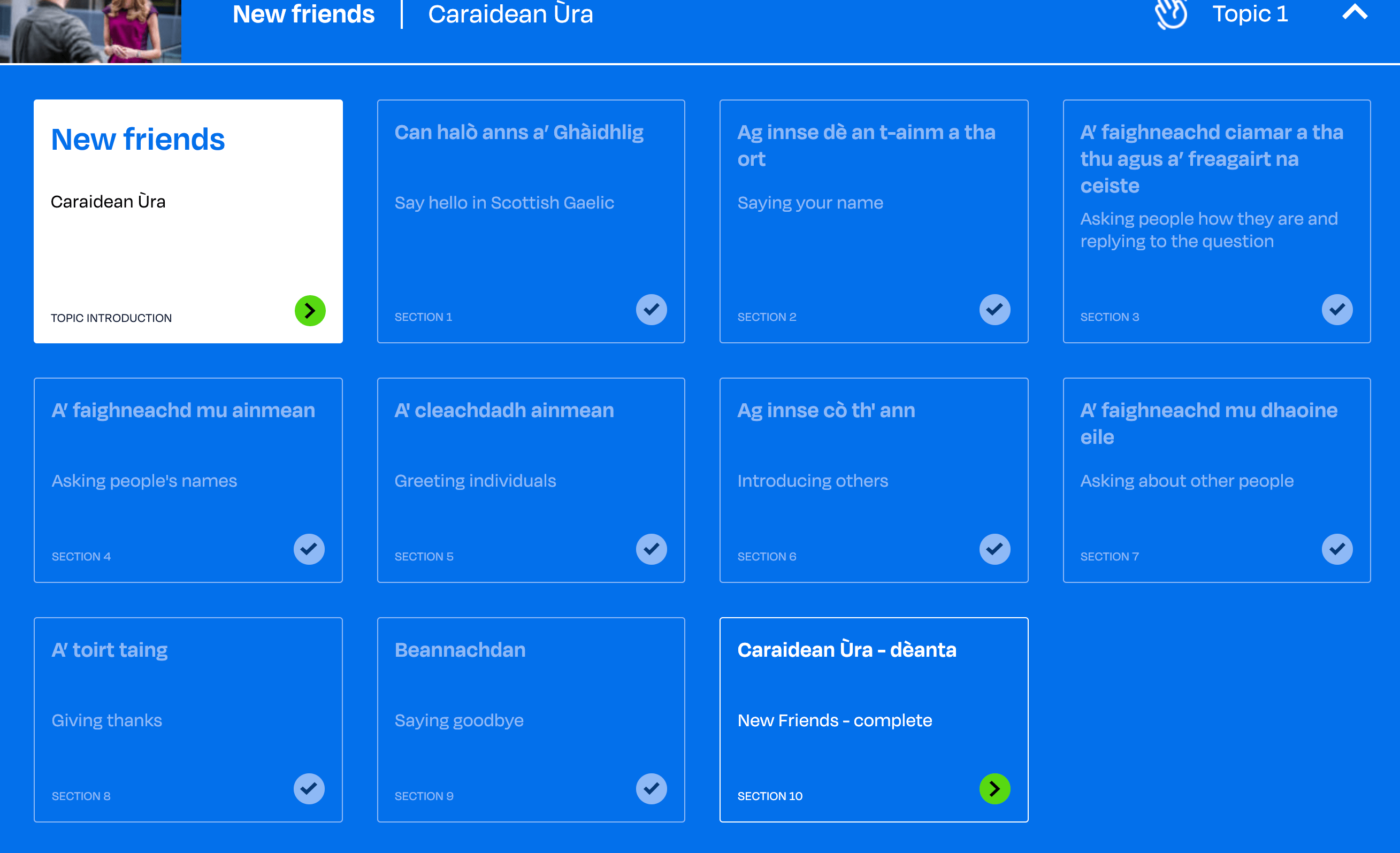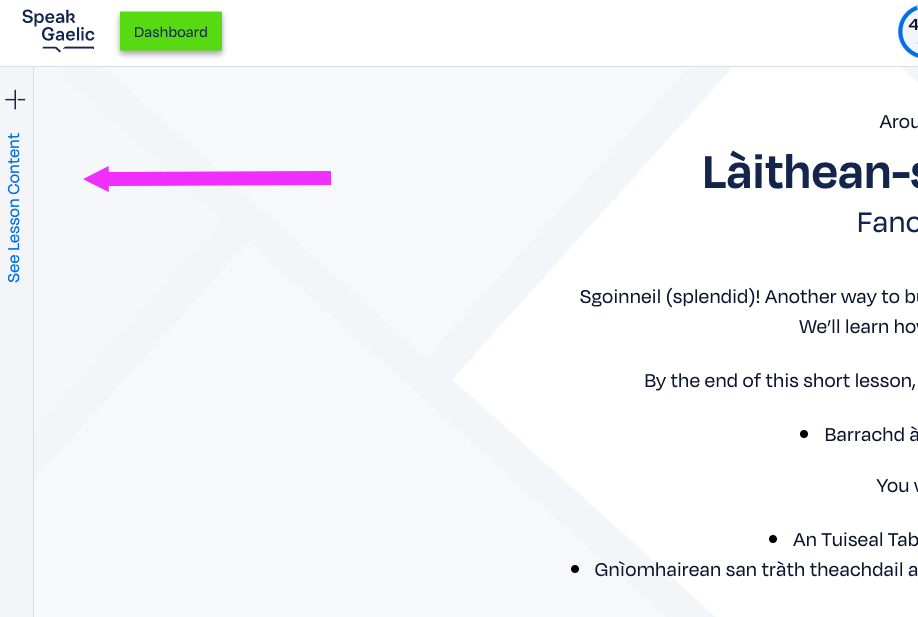Bilingual transcription: Briathrachas còmhdhail
Bilingual transcription: Transport terminology
Watch this clip where Joy gives us some of her favourite useful phrases.
This time it’s: transport terminology.
JOY
In Gaelic, some of the words we have for transport are very similar to the English ones and I’m sure you’ll have learned some of them already. Ach bheir sinn sùil aithghearr air dhà neo trì dhiubh sin:
An aeroplane is plèana
or sometimes you’ll hear itealan, itealan being used, plèana or itealan
The Gaelic for a boat is bàta, but if it’s a ferry,
it’s bàt’-aiseig, literally a ferry boat, although you’ll often just hear the word aiseag being used by itself.
Something to be aware of when talking about travelling – siubhal, travelling or travel – is that the L sound at the end of the word siubhal, changes depending on its use.
Siubhal by itself ends with a broad L, siubhal. But when it’s in the genitive form, for example, modhan-siubhail, ways of travelling, modhan-siubhail, the L sound becomes a slender L, modhan siubhail. Listen out for the difference whenever you hear them. Siubhal agus modhan-siubhail.
Now we quite often like to be able to compare different modes of siubhal so let’s look at some words which will help you do this.
Luath means quick or fast, luath, but luath becomes nas luaithe, faster. Luath agus nas luaithe.
If something is slow, slaodach, we can say that is it slower by saying nas slaodaiche.
Slaodach agus nas slaodaiche.
And if we want to describe something as the fastest, slowest, or dearest?
luath becomes
as luaithe, fastest; as rather than nas, as luaithe.
Luath agus as luaithe.
To say it’s the slowest, slaodach
becomes as slaodaiche, slowest;
Slaodach agus as slaodaiche.
And to say it’s the dearest, daor
becomes as daoire, dearest.
Daor agus as daoire.
Now, probably the most important question when we’re talking about travel is how people move around. And you can do that using the phrase:
An ann …? An ann …?
For example, to ask if someone has come by train:
An ann air an trèana / a thàinig i? Was it on the train that she came? An ann air an trèana a thàinig i?
Or to ask if she will come by bus:
An ann air a’ bhus / a thig i? Is it on the bus that she will come? Will she come by bus? An ann air a’ bhus a thig i?




